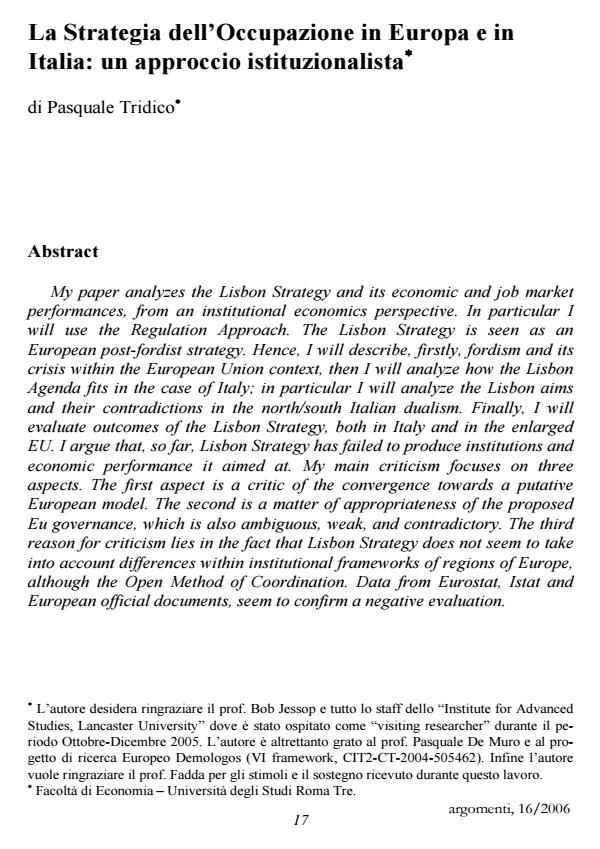La strategia dell'Occupazione in Europa e in italia: un approccio istituzionalista
Journal title ARGOMENTI
Author/s Pasquale Tridico
Publishing Year 2006 Issue 2006/16
Language Italian Pages 47 P. File size 351 KB
DOI
DOI is like a bar code for intellectual property: to have more infomation
click here
Below, you can see the article first page
If you want to buy this article in PDF format, you can do it, following the instructions to buy download credits

FrancoAngeli is member of Publishers International Linking Association, Inc (PILA), a not-for-profit association which run the CrossRef service enabling links to and from online scholarly content.
My paper analyzes the Lisbon Strategy and its economic and job market performances, from an institutional economics perspective. In particular I will use the Regulation Approach. The Lisbon Strategy is seen as an European post-fordist strategy. Hence, I will describe, firstly, fordism and its crisis within the European Union context, then I will analyze how the Lisbon Agenda fits in the case of Italy; in particular I will analyze the Lisbon aims and their contradictions in the north/south Italian dualism. Finally, I will evaluate outcomes of the Lisbon Strategy, both in Italy and in the enlarged EU. I argue that, so far, Lisbon Strategy has failed to produce institutions and economic performance it aimed at. My main criticism focuses on three aspects. The first aspect is a critic of the convergence towards a putative European model. The second is a matter of appropriateness of the proposed Eu governance, which is also ambiguous, weak, and contradictory. The third reason for criticism lies in the fact that Lisbon Strategy does not seem to take into account differences within institutional frameworks of regions of Europe, although the Open Method of Coordination. Data from Eurostat, Istat and European official documents, seem to confirm a negative evaluation.
Pasquale Tridico, La strategia dell'Occupazione in Europa e in italia: un approccio istituzionalista in "ARGOMENTI" 16/2006, pp , DOI: